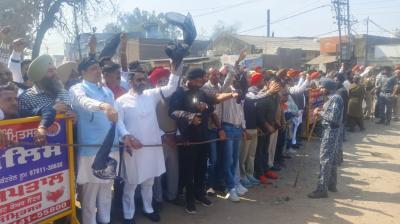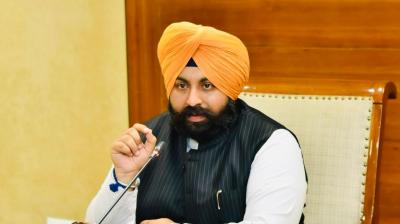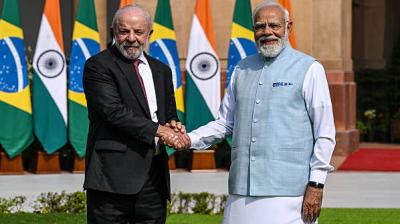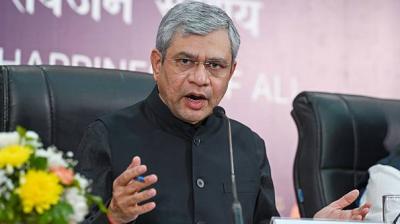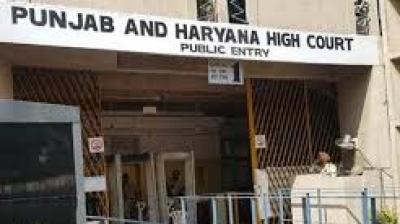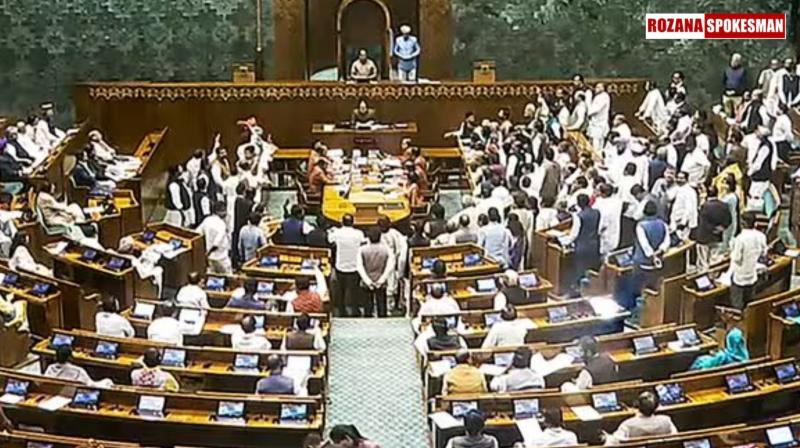
The only exception was Constitution Day on Tuesday, which was observed as an unofficial holiday.
The ongoing winter session of Parliament has been marred by disruption rather than constructive discussion. For the third consecutive day, the opposition insisted on addressing pressing issues such as the alleged Adani corruption scandal, communal violence in Sambhal, and the Manipur riots. On the other hand, the ruling party remained steadfast in prioritizing no-go motions and routine discussions, sidelining these contentious topics.
This deadlock marked the fourth working day of the session that began on Monday, with both sides refusing to yield, resulting in the neglect of public-interest matters. The Business Advisory Committees of the Rajya Sabha and Lok Sabha, which meet daily to outline the legislative agenda, saw their plans derailed as neither party adhered to the agreed schedule. The only exception was Constitution Day on Tuesday, which was observed as an unofficial holiday.
The Role of Adjournment Motions
An adjournment motion is a legitimate parliamentary tool, enabling parties to prioritize urgent issues over routine business. If the Speaker deems the motion inadmissible, alternative rules allow for debate requests. However, if these avenues are exhausted, parties may resort to protests, sit-ins, or noise within acceptable limits. Unfortunately, the disruptions witnessed this week crossed those limits, undermining parliamentary decorum.
Governments often benefit from such chaos, avoiding scrutiny on controversial issues while portraying themselves as upholders of constitutional values. Amid the uproar, critical bills are sometimes passed without meaningful debate, enabling governments to expedite their agendas unchallenged.
A Divided Opposition
Frequent disruptions have also caused rifts within opposition ranks. For instance, the Trinamool Congress (TMC) expressed discontent with the Congress’ strategy of daily protests. The TMC argued that issues like Adani's controversy, though significant, do not warrant stalling Parliament indefinitely. Two TMC MPs criticized the Congress for what they called "hypocritical behavior," accusing it of prioritizing ceremonial functions over legislative work.
Key Issues Being Overlooked
The issues at the heart of this parliamentary standoff are undeniably serious. The corruption charges filed in a U.S. federal court against Gautam Adani, his nephew Sagar Adani, and six other Indian corporate figures have raised concerns about India’s corporate reputation. The subsequent plunge in Adani Group shares has caused significant financial losses to Indian investors.
Similarly, the communal clashes in Sambhal have created an explosive atmosphere. While the Supreme Court's stay on the Jama Masjid survey—allegedly the root cause of tension—offers temporary relief, the situation demands parliamentary scrutiny.
The Need for Constructive Dialogue
The continued standoff between the ruling party and the opposition is sacrificing meaningful discussion on critical issues. Both sides must recognize that a productive debate is far more significant than disagreements over its format. Parliamentary parties must prioritize the nation's interests over political theatrics, ensuring that urgent matters receive the attention they deserve.
A robust democracy thrives on debate, not disruption. It is high time both the ruling party and the opposition uphold this principle for the greater good.



